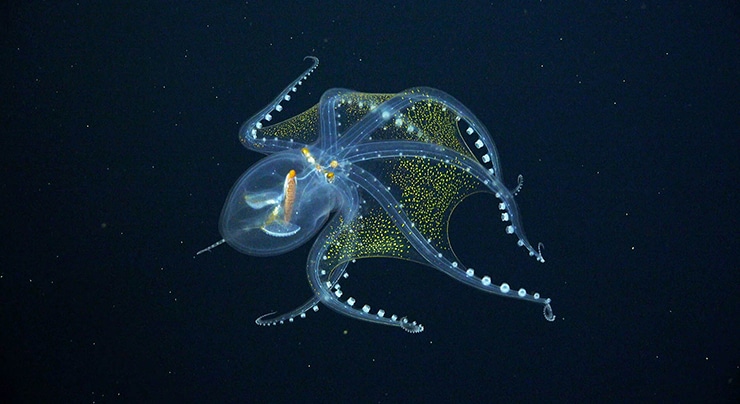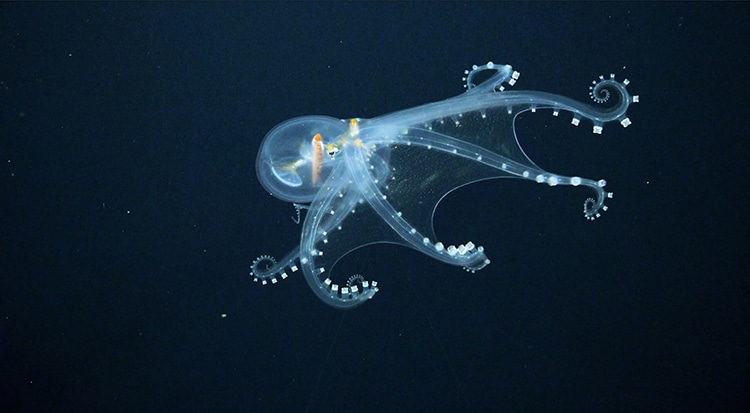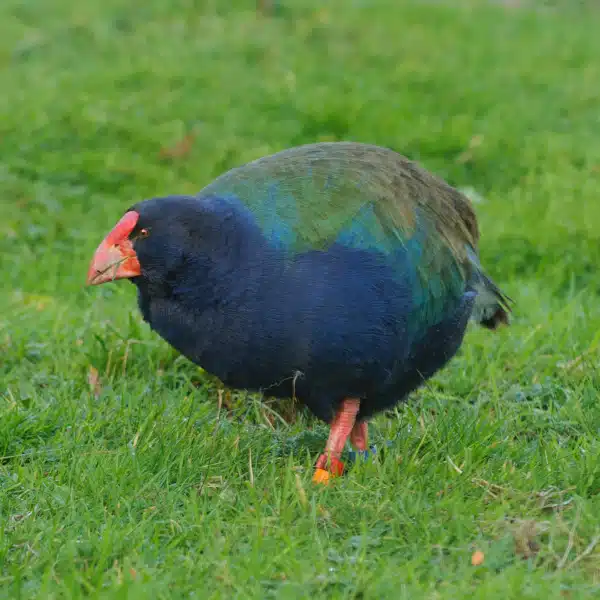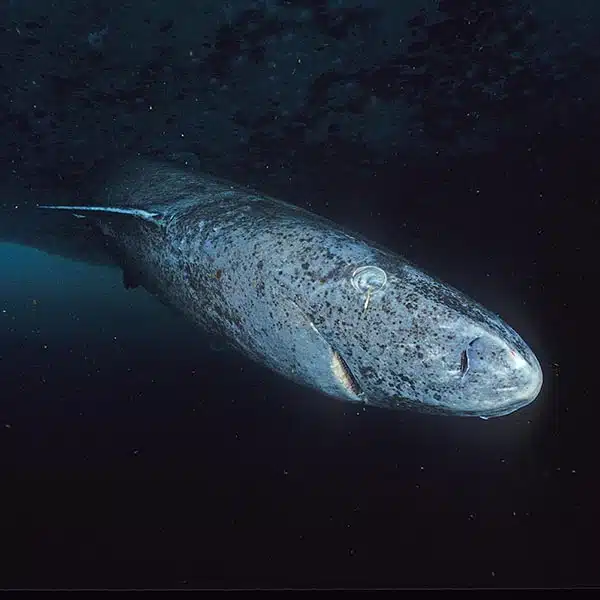
The elusive glass octopus. (Photo: Schmidt Ocean Institute)
There are still so many things we do not know about the creatures that live in the depths of the ocean. Research is necessary to help solve the mysteries of the deep and better inform conservation efforts around the world. This is the mission of the Schmidt Ocean Institute. Founded in 2009, the institute lends its research vessel Falkor for free to international scientists. On one of these voyages—lasting 34 days around the Phoenix Islands Archipelago—researchers came face to face with amazing marine life, including a rare sighting of a glass octopus.
The month-long mission in the Pacific Ocean was a joint mission by the Schmidt Ocean Institute, The Woods Hole Oceanographic Institution (WHOI), and researchers from Boston University (BU). Using high-resolution seafloor mapping and an underwater robot with a camera (affectionately known as SuBastian), the team explored nine seamounts. Seamounts are underwater mountains formed by volcanic activity which host incredible biodiversity. These mountains cover vast swaths of ocean floor and can rise as “high” as mountains do on Earth.
While exploring below the water's surface, the researchers had two encounters with the rare, elusive glass octopus (Vitreledonella richardi). This species is known for being mostly transparent save its optic nerve, eyeballs, and digestive tract. The team noted that this encounter was a perfect chance to study the creature alive, as opposed to examining it as food remnants in another animal's stomach. The average swimmer will not encounter these creatures while swimming, though—they live in dark ocean waters about 3,000 feet below the surface.
While the creature is still rather a mystery to scientists, it is not at present considered endangered. It has been documented rather widely in tropical and sub-tropical waters. It also possesses the ability to camouflage using special cells called chromatophores (the yellow dots seen in the image above). As magnificent as it is, the glass octopus is actually quite tiny. Its body reaches about 4.3 inches in length and 17.7 inches with tentacles. This is positively minuscule compared to another rare creature encountered by the team—the whale shark, an ancient species measuring 40 feet long.
From the glass octopus to crabs stealing fish from one another, the team reported countless amazing encounters from their voyage. Their footage and data will help inform ocean conservation over the next decade, designated by the UN as the Decade of Ocean Science for Sustainable Development. To keep up to date on the voyages of the Schmidt Ocean Institute's Falkor, follow their Instagram.
Aboard the Schmidt Ocean Institute's Falkor vessel, researchers spent 34 days exploring the Phoenix Islands Archipelago in the Pacific.

Photo: Schmidt Ocean Institute
The team twice encountered a rare, elusive glass octopus.
View this post on Instagram
This deepwater creature is just one of the many fascinating marine animals encountered by the team.
Schmidt Ocean Institute: Website | Instagram | Facebook | YouTube
h/t: [IFL Science, Colossal]
Related Articles:
This Fascinating Video Shows a Sleeping Octopus Changes Color While Dreaming
Rare Octopus With Transparent Head Caught by Blackwater Photographer [Interview]
Winners of the Ocean Art Photography Contest Highlight Marine Life Around the World
Incredible Winners of Scuba Diving Magazine’s Underwater Photo Contest 2018






















































































